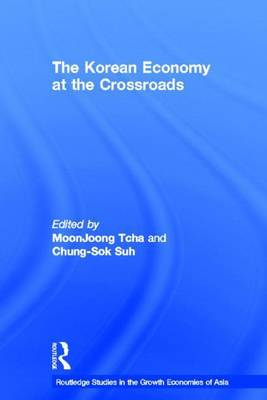Routledge Studies in the Growth Economies of Asia
3 total works
This enticing collection, with contributions from experts with an impressive knowledge of Korea and its economy, charts not only the well documented causes of the crisis, but more importantly, its response and recovery from it. With an admirable scholarly rigour, the book covers such topics as:
*the origin and evolution of the Korean economic system and its special factors including chaebols
*Korean industries since the crisis
*What happened to the money after the capital flight of the crisis and did the USA benefit?
"The Korean Economy at the" "Crossroads" is intended and recommended not only for students and academics involved in international finance, economics and Asian studies, but also for the business leaders and policy makers who can draw lessons from the books important analyses.
Korea's Pop Music Industry
by Joseph Hyosup Kim, Seung-Ho Kwon, and Chung-Sok Suh
South Korea has rapidly emerged as a world economic power, within which chaebols - large family-controlled business groups, including such well known names as Hyundai and Samsung – have been the dominant economic force, with a powerful influence in politics. This book, covering the period from the 1960s to the present, traces the impact the chaebols have had on the development of South Korea’s industrial relations system, a system which is quite different from other industrial relations systems in East Asia. It shows how, although the various chaebols have had their own styles of management, often determined by the outlook of the founders and by differing circumstances, they came together in 1970 to form the Korea Employers’ Federation (KEF). This organisation, as the book demonstrates, has taken on a life of its own, playing a key role in the industrial relations system which has well developed practices for avoiding conflict. The book also relates the chaebols and developments in industrial relations to changing political circumstances, from military dictatorships to democracy, to a world where there prevailed more autonomous governments, more militant unions, and more pluralistic and even radical industrial relations.

